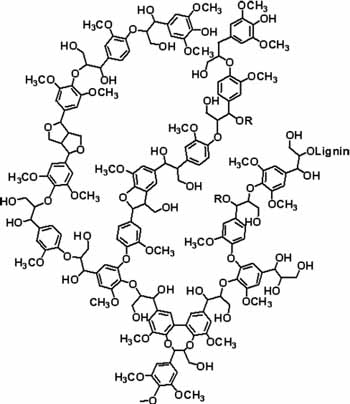Bio-Plastic Made from Lignin Could be on Shelves within Five Years
![]() Print this Article | Send to Colleague
Print this Article | Send to Colleague
 According to a report on Wednesday (July 4) by The Telegraph, London, U.K., Biodegradable plastic that can be tossed out with food scraps could be on the shelves within five years after scientists may have found an ingenious way to turn ‘tree glue’ into new forms of packaging in the industry.
According to a report on Wednesday (July 4) by The Telegraph, London, U.K., Biodegradable plastic that can be tossed out with food scraps could be on the shelves within five years after scientists may have found an ingenious way to turn ‘tree glue’ into new forms of packaging in the industry.Researchers at the University of Warwick have found that the organic "tree glue" called lignin, which holds cellulose fibers together, stiffening plant stems, can be turned into a strong, moldable plastic. Lignin is a mill cycled byproduct of papermaking. While it is useful in plants, among other reasons, it causes paper in its final form to weaken and discolour quickly, and so it is removed during the pulping stage in the general papermaking process.
In its raw form it is generally "useless" on the general commercial markets, but Professor Tim Bugg at Warwick University has developed a way to use genetically modified bacteria to turn his "lignin glue" into useful chemicals. He found that a bacterial called Rhodococcus jostii which lives in the soil and feeds on the glue, can be genetically tweaked so that it turns lignin into high yields of biodegradable plastic.
Speaking at a briefing in Central London on how to deal with the world’s plastic waste problem, Bugg said "I have been working on lignin for 40 years and when I started people said ‘you’re wasting your time’ but now people are thinking this is possible. Still difficult but it is possible."
There are only a small number of organisms that can break down lignin and Prof Bugg’s team are using the genetic material from two strains of bacteria to speed up the process.
"Normally the bacteria uses it for growth, and breaks it down into small molecules which it uses as food to grow," he added.
"So we are trying to intercept that process so it still can grow but it can do something for us at the same time... Because lignin is complex, as you break it down you get a complex mixture but what’s nice is with these bacteria they are able to funnel all this. We are hoping in five years that we will have something."


